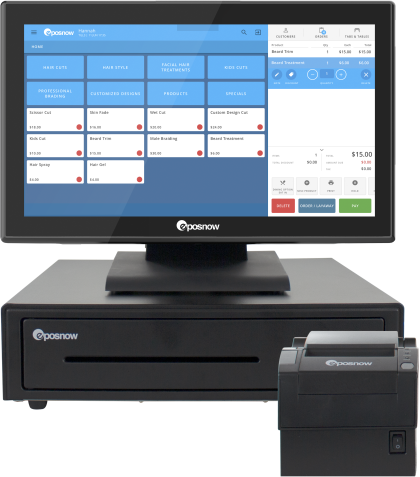What is Retail Finance?
When times get tight, as they so often do, life doesn’t stop. As a private individual, purchases need to be made. Going without can be impractical or inconvenient, despite it being impossible to find the money there and then.
For your business, losing the sale is the last thing you want. For so many retail businesses, loans provide a potential solution.
Retail funding solutions: how do they work?
Retail finance is largely, though not entirely, limited to the retail industry but is so-called because the retail industry uses these kinds of business loans more than any other. By definition, retail finance “offers credit facilities or stage payments to suitable, creditworthy customers”[1].
You may also see retail finance deals referred to as point of sale loans as they are agreed at the checkout. Many agreements are made in-store, but these kinds of loans are also common in eCommerce.
Depending on the size of the purchase and business involved, they will usually be relatively short-term loans of up to a year. Although the loan providers can set their own terms and with many lending up to tens of thousands of dollars, larger purchases can have longer payback terms.
In almost every case, retail funding is provided by a third party who mediates between the customer and the lender. The retailer receives partial payment from the customer, and the rest of the funding comes from the provider. The retailer gets the sale, the customer receives the product, and the lender will take a cut from the sale as well as any added expenses and interest payments from the customer.
The business of finance solutions in retail is still authorized and regulated by the financial authorities and not every customer will be eligible based on their credit rating and income. But offering retail finance where possible can do more than just increase conversions and boost sales. Benefits of offering also include increased customer loyalty and repeat business.
If you’re considering setting up an agreement with a retail finance provider, finding good deals to pass on to your customers will be crucial to the success of the plan. If interest is too high or payback too soon, consumers may prefer not to make the purchase after all.
For an integrated POS solution that will take care of in-store and online sales, try Epos Now's specialized retail system:
- Integrate multiple sales platforms and manage them in one place
- Manage stock and product data quickly and easily
- Know your business with hundreds of modifiable, detailed, downloadable reports
- Be supported all the way with an expert team on hand 24/7

Consumer retail finance plans
There are several common kinds of retail finance loans, and offering your customers different kinds could see different results. Depending on factors like average order and your customer base, your business may suit different financing options.
Zero-interest
For instance, one of the more popular types of loan are zero-interest or 0%. Offering these to your customers allows them to purchase goods at the same price as everyone else but to make the purchase in installments rather than upfront.
With zero-interest loans, the provider still has the potential to make money because the penalties for late payments are high. So while the loanee can pay no interest if all goes well, if payments are late, they will end up paying more than they would have on a basic, interest-paying loan.
Nevertheless, zero-interest loans are ideal for those who want to make a purchase before payday and know they will have the money available to pay the loan back soon, or have a structured repayment plan in place.
Buy now, pay later (BNPL)
A buy now, pay later loan is a similarly self-explanatory payment option. The consumer takes the loan out in-store to make the purchase, and an agreement is made that the loan will be repaid in a certain timeframe.
There is usually flexibility within the repayment schedule, so if the consumer wants to pay a lump sum shortly after taking the loan out, it can be repaid early. This can be done in installments spreading the cost out over the period if desired. Alternatively, a lump sum can be paid at the end of the period.
Given the flexibility of these loans, many consumers are not fully aware of the terms when agreements are made. For instance, late fees and interest charges are common in BNPL loans, and this area of finance is not regulated like other areas of finance[2].
Nevertheless, BNPL often makes attractive offers, but it is advisable to properly inform customers so they can decide for themselves how they feel about the offer and trust in your business does not suffer in the event of late fees.
Epos Now Payments for Easier Money Management
For the best card payment deals, try Epos Now Payments for:
- Seamless integration with your POS
- Mobile and countertop options
- Easy to understand, blended rates
- Transaction and business reports all in one place
- 24/7 support for your POS and card payments
Choose the Pro for the freedom of mobile payments
Or the countertop Link device for your busy service areas
You may also like:
Find out how your store could benefit from an EPOS trusted by over 40,000 businesses worldwide.




